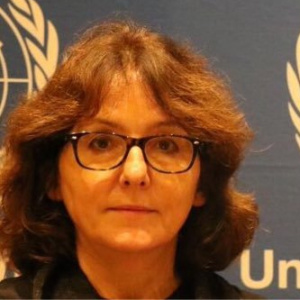UN Report on Rape
Excerpts from the Report
UN Special Rapporteur on Violence Against Women Ms. Dubravka Šimonović looks to harmonize national criminal laws and systems and practices with international human rights standards in criminalizing and prosecuting rape.
“The United Nations Special Rapporteur on violence against women, its causes and consequences, Ms. Dubravka Šimonović, in her thematic report to be presented to the UN Human Rights Council in June 2021, addresses States’ responsibility to criminalize and prosecute rape as a grave and systematic human rights violation and a manifestation of gender-based violence against women, in line with international human rights standards,” introduced the publication of the report online.
“Rape is a violation of a range of human rights, including the right to bodily integrity, the rights to autonomy and to sexual autonomy, the right to privacy, the right to the highest attainable standard of physical and mental health, women’s right to equality before the law and the rights to be free from violence, discrimination, torture and other cruel or inhuman treatment,” the report cited.
The aim of the report is to support and encourage a process of harmonization of national criminal laws and systems and practice with international standards on rape and sexual violence in both peacetime and during conflicts.
A questionnaire on criminalization and prosecution of rape was completed by member states, national human rights institutions, UN entities and legal mechanisms and civil society organizations to survey the definition and scope of criminal law provisions, prosecution and data on rape in various countries.
For this, the Special Rapporteur received 207 submissions to her questionnaire on the criminalization and prosecution of rape, covering 105 States across all regions. Responses were received from 46 Governments, 19 national human rights institutions and 142 other entities, comprising civil society organizations, international organizations, academia and others. Through this, gaps in the criminalization and prosecution of rape at the national level and recommendations for its prevention.
The report noted how international human rights law, international humanitarian law and international criminal law on rape have advanced significantly over the past few decades, in independent yet interrelated processes resulting in advanced standards on the criminalization and prosecution of rape.
Here are some of them:
- Rape, as a form of discrimination and gender-based violence against women, is specifically mentioned by the Committee on the Elimination of Discrimination against Women in its general recommendation No. 19 (1992) on violence against women, in which it refers to rape as a manifestation of violence against women in the family
- The Declaration on the Elimination of Violence against Women, the first universal international instrument that provided a definition of violence against women, included “rape” and “marital rape” as forms of violence in its article 2.
- The Vienna Declaration and Programme of Action, of 1993, established that eliminating violence against women was a human rights obligation of States, and that rape and sexual violence in armed conflict were violations of the fundamental principles of international humanitarian and human rights law.
- The Beijing Declaration and Platform for Action, of 1995, recognized rape as a manifestation of violence in the family and in the community, and the systematic practice of rape in conflict as a deliberate instrument of war, constituting a war crime.
However, the report noted how these international standards have not been fully incorporated at the national level. States criminalize rape using different definitions (based on force or on lack of consent), protecting different persons (only women or all persons), including or excluding marital rape, covering different types of penetrations, prescribing different aggravating and mitigating circumstances, setting different lengths of sentences, prescribing ex officio or ex parte prosecution of rape, and providing or not providing at all for different statutes of limitation for its prosecution.
Additionally, their implementation is influenced by the surrounding general context of different forms of discrimination and gender-based violence against women, myths and gender-based stereotyping on rape by the media and the criminal justice system.
All these factors contribute to the fact that rape is frequently not reported. If rape is reported, it is seldom prosecuted; if prosecuted, the prosecution is rarely pursued in a gender sensitive manner and often leads to very few convictions, the revictimization of survivors and high attrition rates, resulting in a normalization of rape, a culture of rape or silence on rape, stigmatization of victims and impunity for perpetrators.
Some of the recommendations of the report include:
- States should criminalize rape using a definition of rape that covers all persons, includes marital rape and all acts of penetration of a sexual nature, and explicitly includes lack of consent at its centre. Aggravating and mitigating circumstances should be revisited and aligned with human rights standards.
- Prosecution should be pursued ex officio. Statutes of limitation should be abolished for rape in times of peace or conflict, or, at the very least, child victims should be able to report rape after reaching adulthood. Evidentiary rules of prosecution should significantly change to decrease impunity for perpetrators and increase the rate of prosecution, while protecting victims from revictimization.
- States should repeal other laws that discriminate against women, which directly or indirectly contribute to legal gaps and stereotypes in the criminalization and prosecution of rape. States should abolish any provisions that criminalize consenting sexual relations between adults, such as adultery, zina (illicit sexual relations) and same sex relations, and those that criminalize abortion in cases of rape.
- States should provide adequate services and support to victims of rape, including rape crisis centres, protection orders and interim relief measures in the context of both peace and conflict, including reparations to victims, in accordance with international human rights standards and reports.
Read the report here: https://www.ohchr.org/Documents/Issues/Women/SR/RapeReport/governments/philippines.pdf
Find the submissions to the survey from member states, national human rights institutions, UN entities and legal mechanisms and civil society organizations here: https://www.ohchr.org/EN/Issues/Women/SRWomen/Pages/SRVAW.aspx








